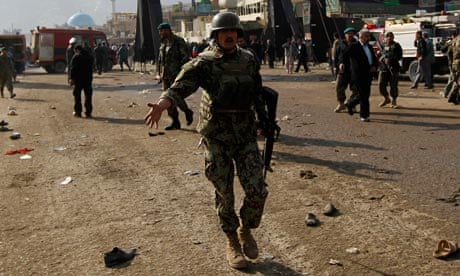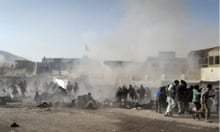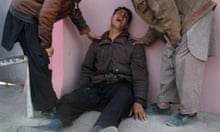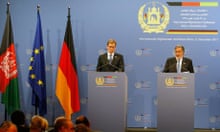Dozens of people are feared dead after a suicide bomber struck at a shrine in Kabul on one of Shia Islam's most important holy days.
What is the significance of this particular attack?
While the death toll, estimated to be at least 48, is high, suicide attacks in and around the Afghan capital have been common in recent years. However, this is believed to be the first such attack in the country seemingly aimed at sowing sectarian division by targeting the minority Shia population.
In what way was this a sectarian attack?
The bomber, who witnesses said carried an explosive-filled backpack, was standing among a crowd of worshippers at the Abul Fazl shrine. The building was packed with people celebrating Ashura, an important Shia Muslim holiday. Ashura marks the death of Hussein, the grandson of the prophet Muhammad, in the battle of Karbala in Iraq in AD680.
Have similar attacks happened elsewhere?
Frequently in Pakistan and, in the chaos following the US-led invasion of 2003, in Iraq. For a period in Iraq the frequency of sectarian bombings and other attacks prompted fears of a full-scale civil war between the country's Sunni and Shia populations. One of the deadliest series of co-ordinated attacks in Iraq took place on the day of Ashura in March 2004, when more than 170 people died in Karbala and Baghdad.
Is there any precedent in Afghanistan?
Analysts say not. "Afghanistan has been at war for 30 years and terrible things have happened, but one of the things that Afghans have been spared generally has been what appears to be this kind of very targeted sectarian attack," Kate Clark, from the Afghanistan Analysts Network, told Reuters. Mohammad Bakir Shaikzada, the top Shia cleric in Kabul, said he could not remember a similar attack.
What is Afghanistan's religious makeup?
While precise figures do not exist, most figures suggest that Shias make up somewhere near 20% of the population, with the overwhelming majority of the rest being Sunnis. The sectarian divide closely reflects Afghanistan's ethnic divisions with most Shias coming from the Dari-speaking Hazara group.




